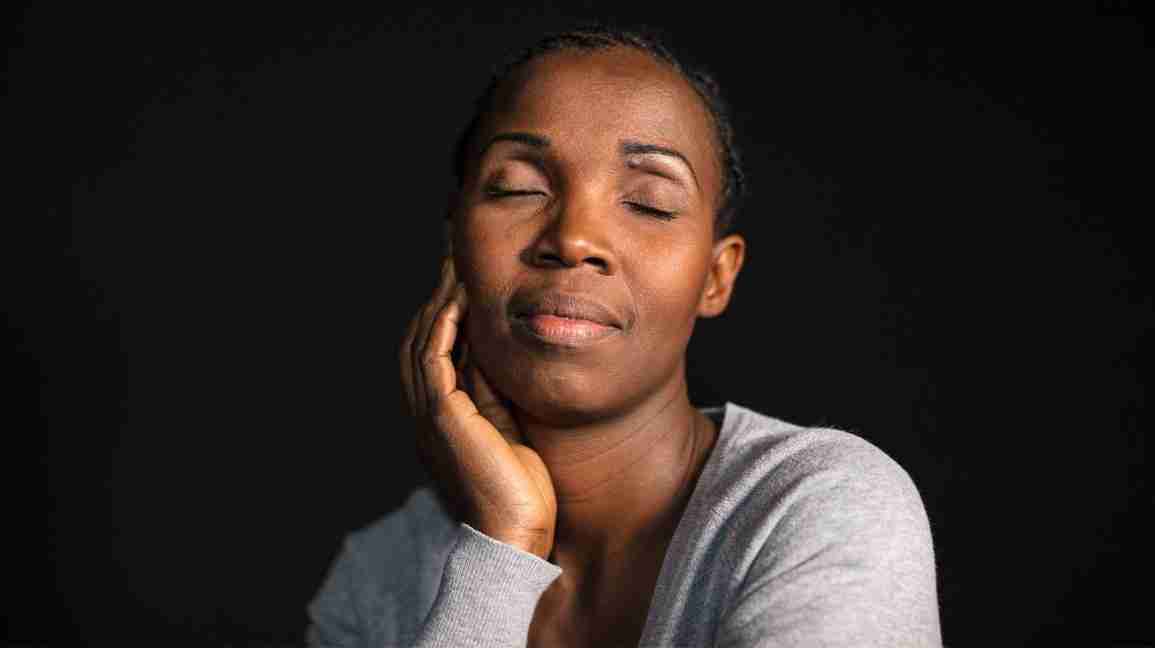From the Black Women’s Health Imperative
It’s no surprise that the big and little stresses of life can have a significant impact on your overall health and well-being — no matter who you are. But for Black women, stress and its health effects can be amplified.
While all women face stressors, Linda Goler Blount, President and CEO of the Black Women’s Health Imperative (BWHI) says that “the inequities in the impact of stress on the health and well-being of Black women cannot be ignored. The lived experiences of Black women speak to the overwhelming stress in their lives.”
A
The study suggests that stressors may be responsible for increased biological aging in Black women.
According to the
“We know that 1 out of 2 Black women suffers from some type of heart disease, much caused by stress in some way,” Blount says. “Stress is killing us.”
Blount also points to high stress levels as a possible reason for higher maternal mortality rates in Black women.
“There simply isn’t enough research on the true physical and mental impacts of stress on Black women across the entire life cycle,” Blount says.
She adds, “Some of what we have learned by listening to over 60,000 Black women has been chronicled in our report, IndexUS: What Healthy Black Women Can Teach Us About Health.”
Our bodies naturally produce a stress hormone called cortisol. It’s the same hormone that triggers the fight or flight response we feel when we react to danger.
Everybody has times when they experience stress, but often it’s based on a situation in the moment.
The stress that causes the most negative effect on Black women is chronic stress, which means it’s ongoing. As a result, Black women’s bodies may produce more cortisol.
Long-term exposure to cortisol can affect the whole body, including increasing a person’s risk of developing:
- heart disease
- anxiety
- depression
- obesity
And if you’re already living with a chronic health condition, unmanaged stress can make it worse.
Data collected from BWHI’s IndexUs shows that Black women have an 85 percent higher rate of medical provider visits for high blood pressure than their white counterparts.
“Black women die from strokes due to high blood pressure at higher rates than white women. And we know there are strong links between stress and high blood pressure,” Blount says.
It’s impossible to completely prevent stress from coming into our lives.
Juggling bills and income, relationships with spouses, parents and children as well as our employers and co-workers can all be stress-inducing.
The evening news and social media also bring world stress and anxiety right into our homes.
The good news is that there are things you can do to lessen daily stress. Making self-care a priority isn’t selfish; it can be lifesaving.
Gauge your stress level by taking the BWHI stress test.
Then, try these 10 tips for taking good care of yourself and managing your stress.
1. Get spiritual
Tap into your spiritual core, whether it’s prayer, meditation, or taking time to catch your breath.
The Black Women’s Health Study (BWHS) findings suggest that religious or spiritual involvement can help you manage your stress and improve your health.
2. Take social media breaks
Social media helps us build connections, but it can also be toxic. Unplug when you’re feeling overwhelmed.
BWHI’s research suggests that so much of the racially charged social media and violent videos can create a stress response in Black women similar to post-traumatic stress disorder (PTSD).
3. Schedule regular exercise
Just 30 minutes a day of moderate exercise can really help you manage how your body processes stress. Whether you run, walk, take a yoga or Pilates class, or lift light weights, find some calm in getting moving.
The BWHS surveys, highlighted in IndexUs, showed that Black women who saw themselves as in good mental health were also working on their physical health through managing their weight and staying active.
4. Have a go-to playlist
Make a music playlist that helps you feel calm, and one that makes you want to dance.
Music can be just the balm you need at your fingertips. Blount says research shows that music can be a major tool in stress management.
5. Get some rest
If you’re having trouble getting to sleep, try adding some relaxation techniques, like breathing exercises, to your nighttime routine.
According to the National Sleep Foundation, a lack of sleep can negatively alter the body’s response to stress. Getting 7 to 8 hours of sleep has been shown to help the body reset.
6. Pay attention to what you eat
Many of the women who participated in the Black Women’s Health Study reported watching what they ate and not using food to manage stress.
It can be tempting to self-medicate stress with unhealthy foods and overeating, but sugary and processed foods and drinks don’t make the stress better. Remember to stay hydrated as well.
7. Slow down
Being busy is not always good or healthy, or even necessary. Tackling everything at 90 miles per hour only ramps up your adrenalin. Decide what’s really an emergency and what isn’t. Pace yourself.
8. Say no
Blount says boundaries are essential in managing stress. We get bombarded with requests both big and small, and the tendency is to want to please people. It’s easy to get overwhelmed.
Sometimes the answer to requests should be no. And remember that “no” is a complete sentence. Setting boundaries is an important part of protecting your health.
9. Don’t be afraid to ask for help
Black women often feel like we have to tackle everything alone — even when we’re drowning in stress. Call a friend or family member and ask for help when you need it.
Sometimes help comes in the form of just having someone to talk to. And sometimes solutions come from reaching out.
10. Get a support system
Don’t go it alone. The women BWHI features in IndexUs talk about the importance of having family and friends in their corner. Having a person or group you can turn to is a great way to put stress in perspective.
The Black Women’s Health Imperative (BWHI) is the first nonprofit organization founded by Black women to protect and advance the health and well-being of Black women and girls. Learn more about BWHI by going to www.bwhi.org.

